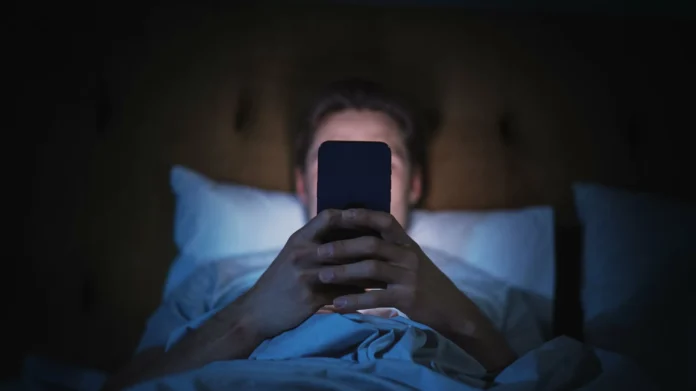A recent study conducted in Norway has shed light on the detrimental effects of screen time before bedtime. The study has revealed that individuals who spend time in front of a screen before going to bed are at a higher risk of experiencing insomnia and sleep deprivation. This new finding has significant implications for our lifestyle choices, and it is important for us to take note of its potential consequences.
The study, conducted by a team of researchers from the University of Oslo, consisted of 500 participants aged between 18 to 35 years. The participants were divided into two groups – one group that used electronic devices such as smartphones, laptops, tablets, and television before going to bed, and the other group that refrained from any screen time before bedtime. The study was conducted over a period of six months, and the results were alarming.
The group that indulged in screen time before bedtime experienced a range of sleep-related issues, including difficulty falling asleep, waking up frequently during the night, and feeling tired and groggy in the morning. On the other hand, the group that stayed away from screens reported no such issues and had a better quality of sleep. The study’s findings clearly indicate a strong correlation between screen time before bedtime and sleep disturbances.
So, what exactly causes screens to disrupt our sleep? The answer lies in the type of light that screens emit. Screens emit blue light, which has a similar effect on the brain as sunlight. Exposure to this blue light suppresses the production of melatonin, the hormone responsible for regulating our sleep-wake cycle. As a result, our brains remain alert and active, making it difficult for us to fall asleep. Moreover, our brains also interpret screen time as a form of stimulation, making it harder for us to unwind and relax before bedtime.
The consequences of inadequate and poor quality sleep are far-reaching. Not only does it leave us feeling tired and irritable the next day, but it also affects our overall health and well-being. Long-term sleep disturbances can lead to a weakened immune system, increased risk of chronic diseases such as diabetes and heart disease, and even mental health issues like anxiety and depression. In children, insufficient sleep can have a negative impact on their academic performance and behavior.
However, it is not just the quantity of sleep that matters; the quality of sleep is equally important. Our bodies and minds need deep, restorative sleep to function at their best. And this is where our nighttime routines play a crucial role. We often underestimate the importance of winding down and preparing our bodies and minds for sleep. Engaging in screen time before bedtime disrupts this process and hinders our ability to have a restful sleep.
But before we think of completely cutting off screens from our daily routine, we must acknowledge that they are an integral part of our lives. We use screens for work, entertainment, communication, and so much more. Completely avoiding screens before bedtime may not be a practical solution. However, we can make some simple adjustments to our routine to ensure that our screen habits do not interfere with our sleep.
One effective way is by limiting screen time before bedtime. It is recommended to avoid screens at least an hour before bedtime to allow our brains to wind down. This can be a perfect opportunity to engage in other relaxing activities like reading, listening to calming music, or practicing mindfulness. Another important factor is the brightness and screen settings of our devices. We can opt for warmer, dimmer lights, and turn on blue light filters to minimize the effects of blue light.
Moreover, it is also important to establish a consistent bedtime routine. Our bodies have an internal clock that works best when we follow a regular sleep schedule. Going to bed and waking up at the same time each day, even on weekends, can help regulate our sleep patterns. Additionally, creating a comfortable and inviting sleep environment, free from distractions like screens, can also improve the quality of our sleep.
The findings of this study serve as a wake-up call for us to reassess our screen habits and their impact on our sleep. We must understand that getting adequate sleep is crucial for our physical, mental, and emotional well-being. Let us strive to make small changes in our nightly routines and prioritize our sleep. After all, a good night’s sleep sets the foundation for a productive and fulfilling day ahead. Let us not let our screen habits rob us of this basic necessity.


